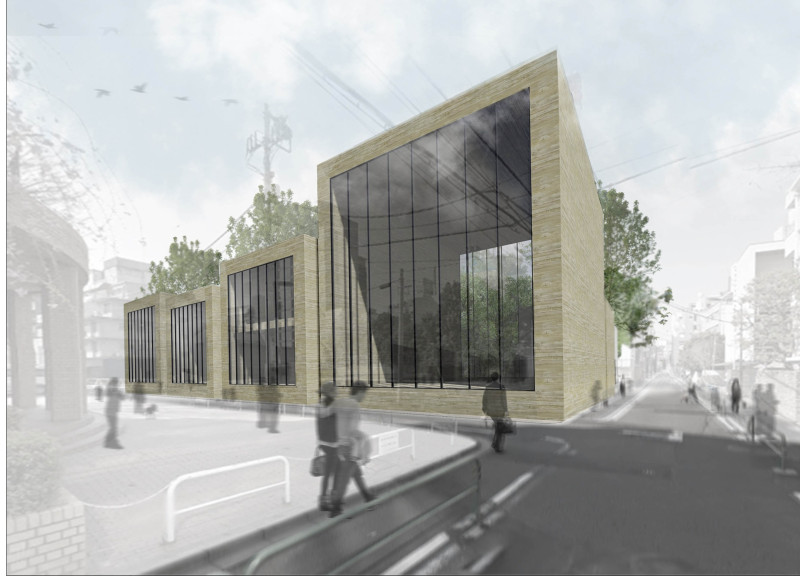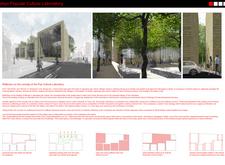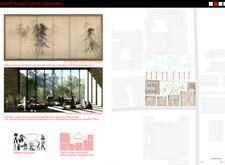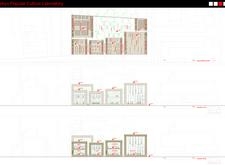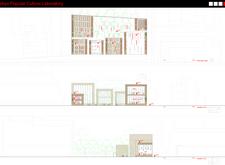5 key facts about this project
## Project Overview
The Tokyo Popular Culture Laboratory is located in Tokyo, Japan, and is conceived as a multifunctional space that embodies the essence of contemporary pop culture. The intent is to create an educational and interactive environment that encourages creativity and community engagement, integrating traditional architectural principles with modern design concepts to address the dynamic nature of urban life.
### Spatial Strategy and Cultural Integration
The design prioritizes the concept of "empty space," inspired by the philosophical teachings of Lao Tzu, emphasizing the importance of the spatial relationship between built form and nature. By incorporating extensive greenery, the laboratory fosters a symbiotic relationship with its surroundings, allowing natural elements to permeate the interior. Flexible layouts accommodate a variety of activities, from workshops to exhibitions, promoting collaboration and interaction among users. The architectural forms draw influences from Japanese pop culture, particularly manga, enabling a unique dialogue between cultural expression and functionality.
### Materiality and User Interaction
Material selection is integral to the laboratory's design narrative. The use of wood conveys warmth and sustainability, reflecting traditional Japanese aesthetics, while expansive glass surfaces enhance transparency and inclusivity. Concrete is introduced for structural support, contrasting with the organic qualities of the other materials. Noteworthy features such as the "dialogue cubes" facilitate informal gatherings and discussions, while an internal garden reinforces a connection to nature and encourages contemplation. These design elements collectively contribute to a tactile experience, encouraging meaningful engagement with the space.


